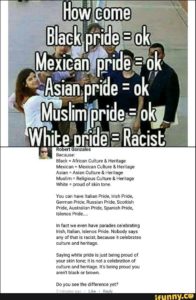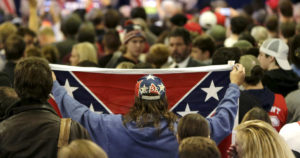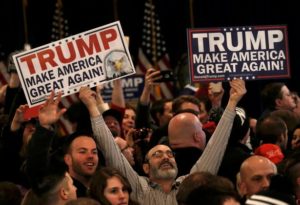“America became white-the people who, as they claim, “settled” the country became white-because of the necessity of denying the Black presence and justifying the Black subjugation. No community can be based on such a principle-or, in other words, no community can be established on so genocidal a lie. White men-from Norway, for example, where they were Norwegians-became white: by slaughtering the cattle, poisoning the wells, torching the houses, massacring Native Americans, raping Black women.” (James Baldwin Black on White)
Baldwin discusses this idea of ‘whiteness’, as far as I can remember ‘whiteness’ has been this unattainable standard of not only beauty but, also living. Growing up it seemed that ‘white people’ had everything, they had nice houses cars and their children went to the best schools. I come from a long line of traditions and culture, many of which have no real context for me personally as I was born and raised in America. But even so I still adhere to these traditions and I treat them as my own. This country has a way of taking people from diverse backgrounds and stamping them with one synonymous identity ‘white’, which effectively strips them of their cultural identity.
When living a society where you a very much a part of the minority population, you would think that having ‘one of your own’ in high places (Politicians, police officers etc.) would help to make the situation easier (livable). But that is actually not the case Taylor discusses this disparity between what we would expect and what actually happens. Black police officer are just as likely if not more likely to discriminate when stopping or arresting individuals. Police officers are meant to represent hope, they are supposed to be here to protect you and to help make you feel safe and secure. But once again there is a disparity between what should be and what really is.
Growing up I’d always been taught not to trust or respect police officers, for some they resemble protectors and for some they resemble wardens. I grew up in a neighborhood where police were always canvasing the area but would take hours to respond to your calls. This was not only my reality but the reality of millions of Black Americans. Taylor also discussed the ‘reign’ of Obama and the way that he discusses and addresses the issues of Black Americans in this country. Many were disappointed with the way that he handled many serious social issues pertaining to the #Blacklivesmatter movement and the killing of Black people. And although I understand the position that he is in as America’s first Black president, I can also understand the people’s frustrations.
There have been many positive changes in our society over the years, most of them positive. But there are many lingering issues, and even a few newly arisen issues that need to be addressed. Obama’s campaign was a campaign of hope, and although we did not achieve all that we had hoped, I hope that we do not lose that sense of “YES WE CAN”.



